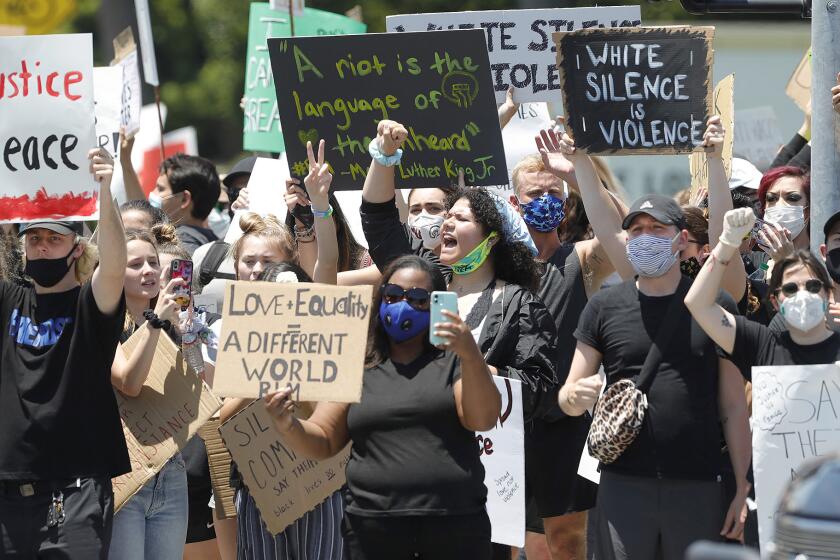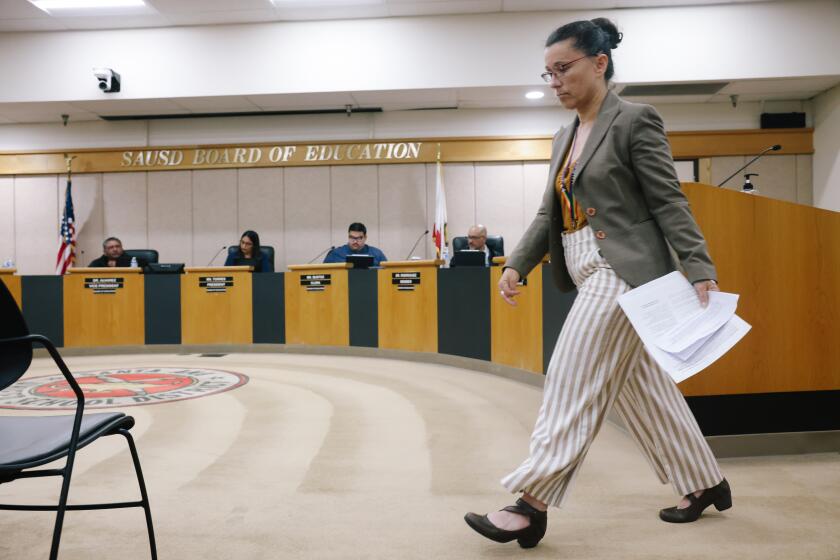Ferin Kidd went from prison to fighting for Black voices in Orange County
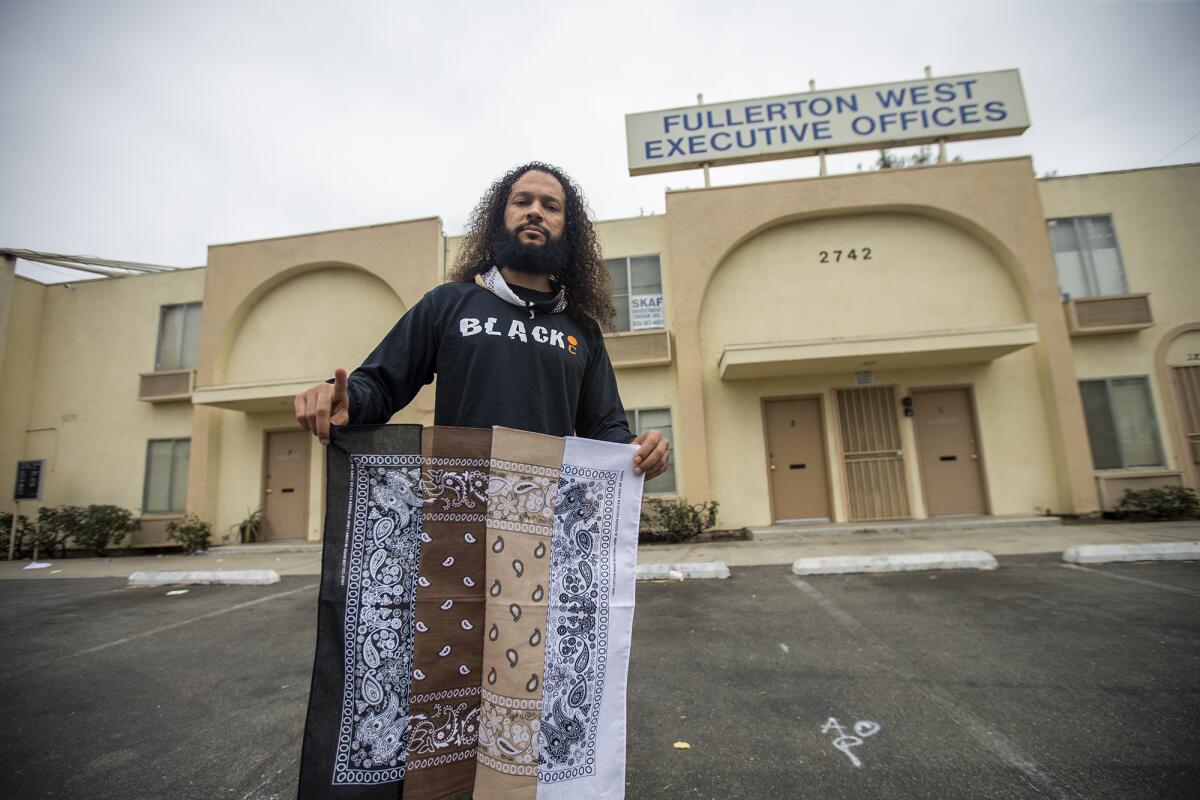
- Share via
Ferin Kidd is the new Orange County.
As the national movement to end police brutality has progressed, he’s emerged as a prominent activist and charismatic community leader, providing a unifying voice for the Black community through his organization Black OC.
Traditionally, many contend that Black voices have fallen on deaf ears in Orange County. Black people make up about 2% of the population. But, Black activists and leaders like Kidd are emerging as vanguards of the movement. They are young, emboldened and pushing for change.
“People are ready,” Kidd said. “They want to know: what do we do going forward and how do we change this? The reality is the only way we begin to change these things is through a more aggressive approach, beginning with getting out in the streets and protesting.
“Getting out and becoming active in the protests, I think that effectively changed the youth culture in Orange County from here forward. We are going to see a much more multicultural Orange County. An Orange County that is Black-friendly and empathetic to Black residents.”
When Kidd was released from prison in 2017 after a 10-year bid for armed robbery, he was given $200 as gate money. Kidd used that meager sum as a corporate filing fee to start Black OC, a business that advocates for the rights of Black residents of Orange County.
As part of Black OC, Kidd mentors at-risk youth in photography and videography. He also works closely with the Heart of JOB Foundation, which mentors youth in the music business. Eventually, Black OC will include an online marketplace for Black artists and businesses to promote, collaborate and network.
Kidd needs funding to further expand the services of Black OC. Currently, it’s almost a one-man job, though he has several part-time collaborators.
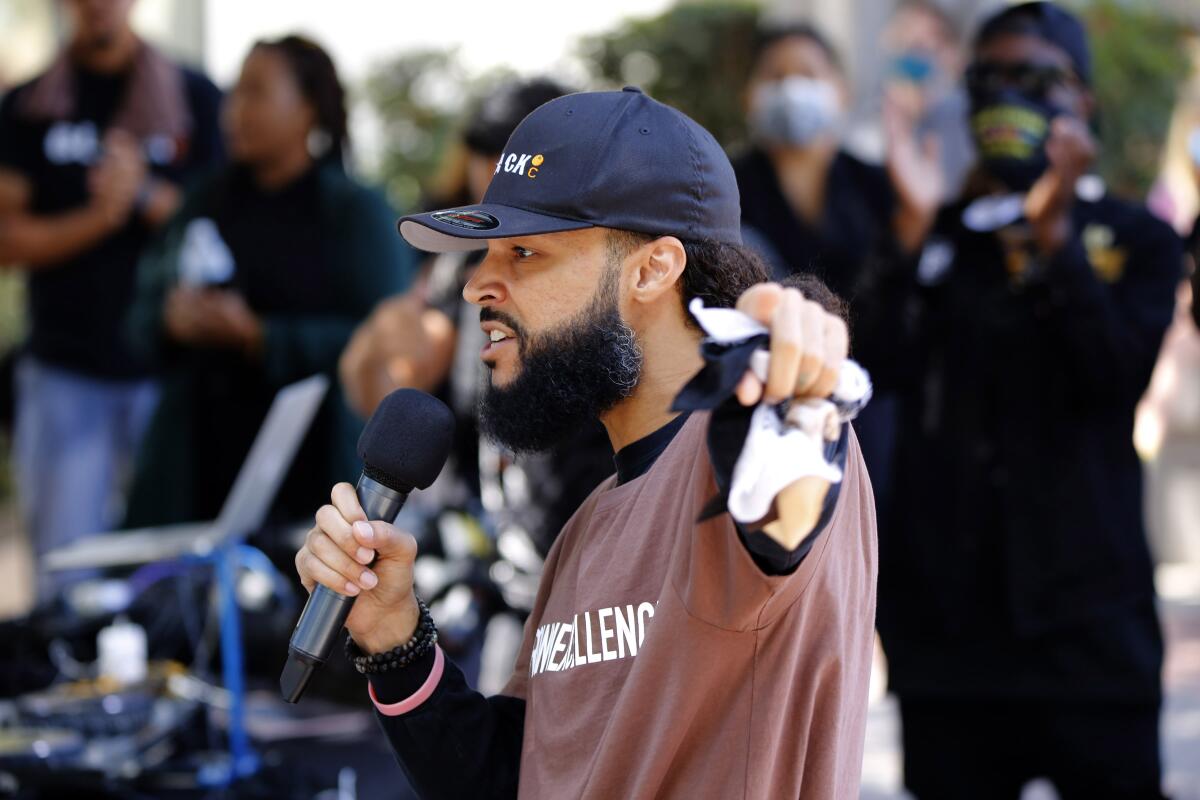
The group has played an integral role in the local anti-police brutality movement since the death of George Floyd sparked national protests in late May. Kidd has attended many protests, including speaking at a few, and Black OC led its own large protest at Sasscer Park in Santa Ana last month.
The morning after Floyd was killed, Kidd flew to Minneapolis to visit the site of his death and film and photograph the protests. That footage will be used for his documentary, “Bang for Change,” which he plans to release this year.
“I woke up and saw George Floyd was murdered,” Kidd said. “I felt called to action like a lot of people felt. I bought a one-way ticket to Minneapolis and went with my camera. I wanted to use my camera the best way I could ... I wanted to bring my camera out there to document the protests from an intimate level. That way I can report what goes on without having to rely on the media.”
Thousands of protesters have converged in Orange County to speak out about the death of unarmed Black man George Floyd while in the custody of Minneapolis police, as well as other Black men, women and children who have died at the hands of police.
Michael Daniel Lynem, a former leader of the Black Panther Party in Orange County in the 1960s, said he and Kidd will be working together in the future on community organizing efforts. Lynem, who is now a pastor in Orange County, spoke at the Sasscer Park rally.
Lynem, 73, said Orange County has dramatically changed. He said he has experienced more racism in Orange County than in Kentucky, where he went to school as a child. But now, the county is becoming more progressive.
“I experienced that Southern racism under Jim Crow, but it was really in Orange County that I experienced that direct racism,” Lynem said. “It was pretty blatant, and it was where I experienced the most racism on a daily basis. Racial profiling, I believe, was the official policy of the police department.”
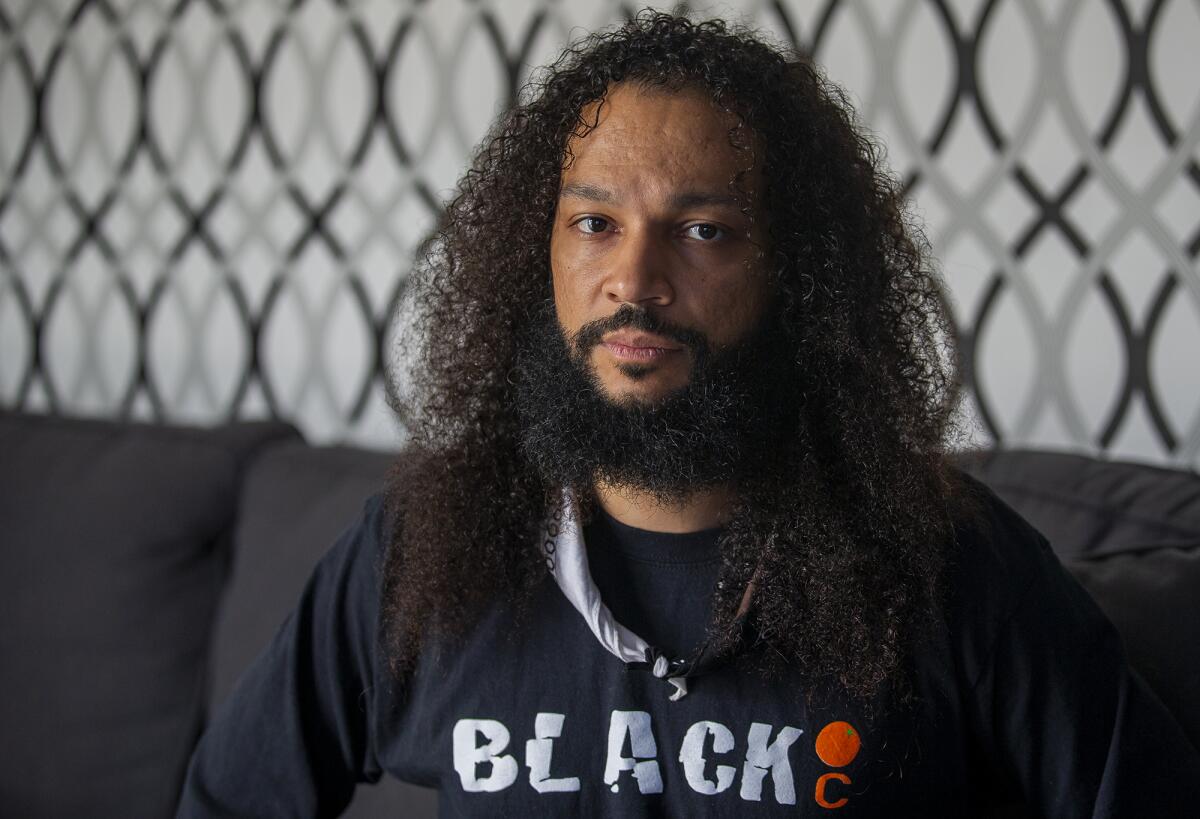
Lynem said he believes the racial divide in the country is the worst it’s ever been, but he has hope in this generation.
“Ferin and them are the kind of people, that with their direction, that is where the hope is going to come from,” Lynem said. “It’s from groups like Black OC.”
Kidd’s knowledge and passion for civil rights was fostered in confinement.
In 2006, Kidd was arrested for suspected armed robbery and possession of a firearm after years in and out of trouble for gang-related crimes. He was facing a triple life sentence due to the three-strikes law. He was able to beat some of the charges and was booked into prison on a 12-year sentence, for which he served about 10 years.
“Going into prison, I knew I for sure couldn’t return to a life of crime and that I needed to figure something out,” Kidd said. “I went in there, and I treated prison like it was a school. Some of the older brothers I talked to in the county jail getting ready to go into prison, they said they call the penitentiary a university. They said that ‘you should come out of this situation stronger in mind, body and soul.’”
Kidd, whose father wasn’t in his life growing up, said that it was the first time he had access to older Black male role models. He said he listened to their counsel and read the books they gave him.
He educated himself on civil rights. He learned spiritual strength and grounding through practicing Islam.
Kidd spent most of his time at Ironwood State Prison in Blythe. Several years into his sentence, Kidd chose to join the state’s inmate firefighter program. He signed up for four years with the program but transferred out after two years.
“It allowed me access to society even in a very limited way,” Kidd said. “It allowed me to do something that was constructive, and I learned a brand new trade and was doing something meaningful. In many ways, it was a positive experience. But in other ways, to the conscious person, it was a very exploitative experience. They are outsourcing prisoners as a cheap labor source.”
Kidd said he was paid a dollar an hour. Some days the inmates worked 24 hours straight. Kidd said many of the inmates tolerated abuse from higher-ups because they were scared to go back to prison.
“There’s a lot of harassment inmates tolerate,” Kidd said. “It has its pros, but it definitely has its cons. I saw that as very exploitative. It is dangerous work. There are times when we are put in positions that are very questionable and highly dangerous. I had been commanded by my fire captains to go into situations that were clearly dangerous.”
Kidd transferred to Lancaster state prison for the remainder of his sentence. There, he started putting his organizing skills to use.
Kidd realized that the predominately-Black prison lacked basic resources for inmates that are required by state law. So he went to work.
First, Kidd drafted a petition taking umbrage with the sluggish pace of the prison’s mail delivery. Mail was supposed to be delivered within 72 hours, but some inmates had to wait months for their mail.
Kidd unified the prison yard to get behind the petition. That wasn’t an easy feat.
“In prison, we are racially divided, so every respective race has their own organization, and inside of the races, you have subgroups like Bloods and Crips,” Kidd said. “Each organization has its own president or leadership. For me, it was just about going to each racial group and letting them know what the petition was for. I needed to collect signatures from every race. We needed to show this isn’t a problem affecting just one group. We need to let them know we all stand united.”
The petition was successful.
From there, Kidd realized that the prison didn’t have a law library. Prisons are legally required to have law libraries, so that inmates can study their own cases and rights.
Kidd once again unified the yard toward a common goal. He said the prison initially agreed to open a library, but with only books.
“That wasn’t good enough,” Kidd said. “We pushed the issue and let them know that there will be legal repercussions if there aren’t computers.”
Computers were added.
Next, Kidd and the inmates were able to petition the prison to open its chapel, which had remained closed due to lack of staffing.
“Inmates have the rights to religious services,” Kidd said. “There was a lot of abuse on the inmate population in that yard.”
Kidd was their advocate. He cared for his fellow inmates, though he kept only a few close friends.
“He was very humble and giving and caring to people who didn’t have things,” said Terrance Hawk, Kidd’s friend at Lancaster prison. “He would build connections with people who didn’t have too much. He would go out of his way to help them. He changed the whole environment in that yard, out of love.”
Kidd met Hawk in 2015 when he arrived in Lancaster.
Hawk, now 25, was a young Black man searching for meaning and direction in his life, much like Kidd when he first entered the prison system.
Kidd mentored Hawk, sharing books on civil rights, Black history and self empowerment.
“We built a bond around civil rights and things we were passionate about,” Hawk said. “I learned so much about Black history and different civil rights activists and revolutionaries. He really helped me become a better version of myself.”
They’d discuss in-depth the “Autobiography of Malcolm X” or the moral tenets of the “Quran.” They practiced Islam together, finding self-growth and spiritual grounding in its pages.
Mostly, they spoke of Black OC and what Kidd would create when he was released.
They discussed what the goals and mission of the organization would be, and how it would better the Black community in Orange County that Kidd grew up in.
“From day one, when Ferin got out, he was on a mission,” Hawk said. “He created Black OC from nothing.”
When Hawk was released from prison a few months after Kidd, Kidd drove from Orange County to pick up Hawk’s mother and sisters to take them to the prison. Kidd filmed the entire event to memorialize the release of his close friend.
Hawk is now working closely with Kidd on Black OC.
He said he owes everything to Kidd.
“To this day, I hear his voice in my head when something is going on in my life,” Hawk said. “I hear his voice in my head telling me something he told me back when we were in prison.”
All the latest on Orange County from Orange County.
Get our free TimesOC newsletter.
You may occasionally receive promotional content from the Daily Pilot.
